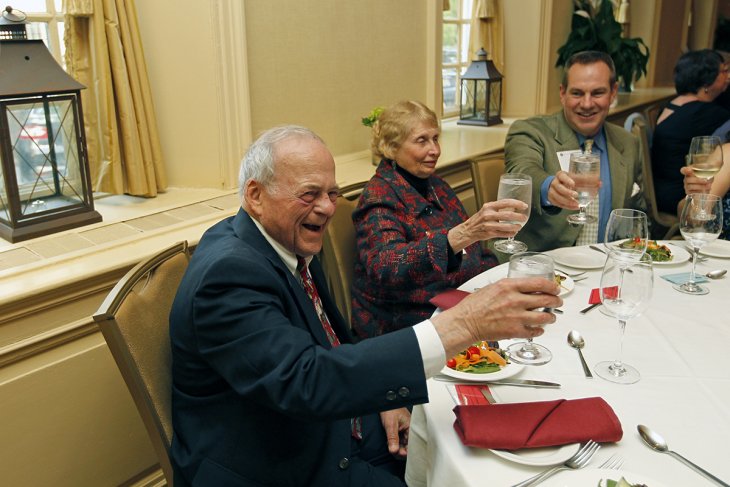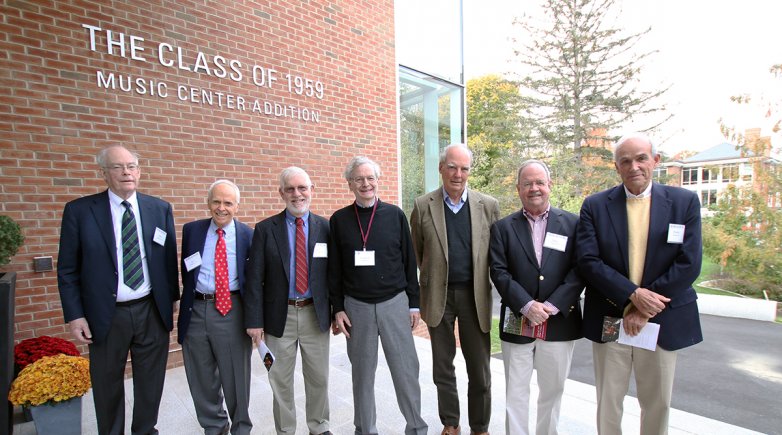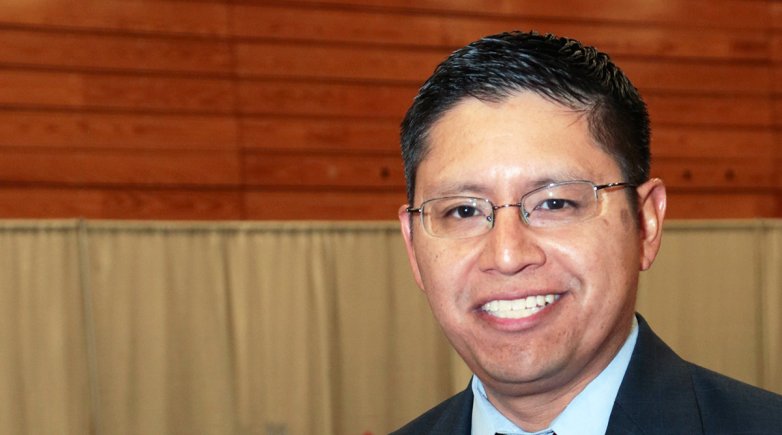The Brown family

A tradition of giving spans generations.
It was the end of World War II, and Gladys and Isidore Brown wished to mark the momentous occasion with a forward-thinking act of generosity.
In a letter to Ezra Pike Rounds, Exeter’s dean of admissions, the Browns wrote, “We know of no better way of showing our gratitude to our beloved country or of celebrating the end and outcome of World War II than by making the enclosed unrestricted contribution.” Their sons, Roger ’43 and Howard ’42, who were still enlisted in the armed services, “join us and thankfully approve of our method of celebration,” the letter concluded.
A family tradition of philanthropy was born, and it has since impacted generations of Exeter students and teachers. In 1973, the Brown parents and their children established the Howard J. Brown ’42 Scholarship Fund to increase the school’s financial aid offerings. In 1979, in honor of Isidore Brown’s 90th birthday, they created the Isidore & Gladys J. Brown Book Fund to expand the Academy Library’s holdings.
Roger Brown ’43 and his wife, Barbara, contributed to the school in additional ways. First, as parents of five Exonians (Jeffrey, Owen, Andrew, Henry and Vanessa) and as aunt and uncle to several more. And then, in grateful recognition for the education the Brown children received, the couple established the Brown Family Faculty Fund in 1985 “to reward and retain outstanding teachers.”
“The Brown Award was the first I had ever received specifically for teaching,” wrote Kathleen Brownback, Vira I. Heinz Distinguished Professor and Instructor in Religion, in a letter of thanks to the Browns. “It had the effect over time of elevating my sense of what I was doing into a true profession, rather than as a job I did because I loved the subject of religion and philosophy and enjoyed the school.”
Exeter’s instructors had made an indelible impact on Brown himself during his school years. “The Math Department was really great when I was there,” he says. “I remember Professors Leighton, Major, Butterfield and Weeks — they were great teachers. I was stuck with those guys — [and] I was really lucky.” He went on to apply those skills in college, earning a B.S. at Yale and an MBA at Harvard Business School. Brown rose to the position of vice chairman of the executive committee at investment bank A.G. Becker & Co. in his native Chicago. He later moved to Harris Associates as president and CEO before retiring in 1990.
Brown remained equally fond of his senior year roommate, and in 2011 created the Otis Pease Professional Development Fund for History in his memory. Pease ’43, who died in 2010, received a Purple Heart for his service in World War II’s Battle of the Bulge and had a distinguished career as a history professor and trustee at Stanford and the University of Washington.
History Department Chair William Jordan recently used the Pease Fund gift to make a trip to Germany that included stops in Nuremberg, Munich, and Heidelberg, as well as a visit to the Dachau concentration camp. “It seemed like every corner I turned stimulated a new connection to the history I teach, to the history I don’t teach and thus a broader perspective, and to the whole point of studying history,” Jordan says.
Brown gives his late wife, Barbara, who died in January, credit for suggesting the establishment of their most recent gift, in 2017. The Barbara and Roger Brown Teachers’ Education Fund is an endowed fund earmarked to support Exeter’s summer teaching conferences: weeklong professional development opportunities that more than 400 teachers from private, parochial and public schools participate in.
It’s the latest in an incredible string of gifts, a history of generosity that was most fully acknowledged in a collection of thank-you letters from past recipients of the Brown Award. Faculty members were clearly moved by the reassurance that their work mattered, the “heartfelt pat on the back for all [the] unseen moments,” the “gift of confidence” the Browns bestowed, and the recognition “not for doing something extraordinary in that particular year, but for making possible the extraordinary things that happen every day in the Harkness classroom.”
—Sarah Zobel
Editor's note: This article first appeared in the spring 2019 issue of The Exeter Bulletin.


